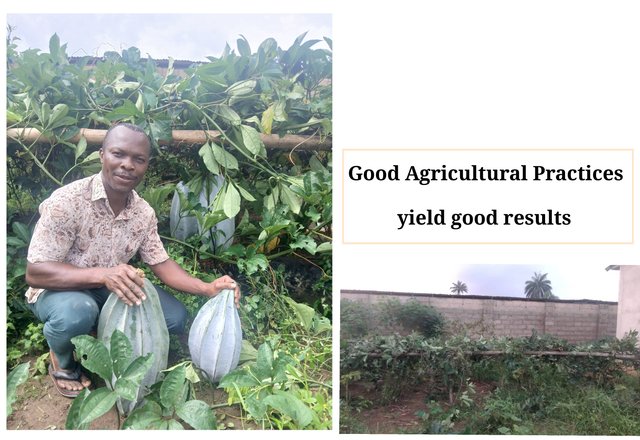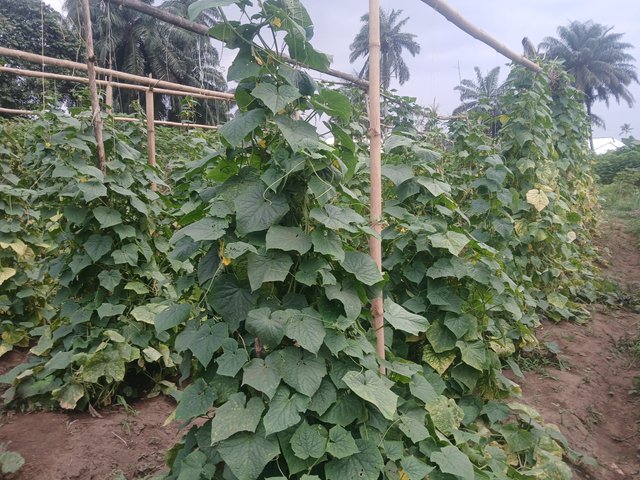Basic Knowledge in Agriculture #47 : Forest.
Agricultural Beliefs and Practices
Culture refers to the way a group of people live their lives; it includes their language, dress, food, farming techniques and practices. Some cultures have rules and laws governing the way agricultural activities are carried out.
While in some cultures, such rules seem to lack good sense but there are some that are a product of smart thinking.
In this post, I will be exploring some beliefs, taboos and rules associated with agriculture among my people. You are welcome to read through and add value to this post by commenting.
◉ Cultural Beliefs in Agriculture
As long as humans have believed in agriculture as a means of sustenance, they have also believed in practices that could either improve yield or cause malediction.
In old texts like the bible, we read of Canaanites who believed in Baal and made sacrificial offerings for a good yield.
The Egyptian Min god was associated with the river Nile, and the king had to perform some odd practices on the Nile to boost crop yields.
Groups of people often have some sets of values, traditions, and some kind of spiritual and religious practices that have shaped their food production and the use of land for agriculture. Such cultural beliefs could present themselves as rituals and ceremonies
◉ Agricultural beliefs in My Community or region
"Look at the moon and you will see a woman weeding, it's because she was farming on Sunday", and when I looked at the full moon then, I believed I saw her there. So we don't farm on Sundays. We are also expected to identify trees, shrubs and animals that have a spiritual link to good harvest, and avoid harming such trees or animals.
You should not harvest palm fruits on a forbidden day.
◉Discuss the Taboos and restrictions in farming in your community
Rule number one: No farming on a Sunday to give the farm spirits space to freely do their work. This has resulted in a lot of people having rest un Sunday. We all needed the rest right?
Iwoko eyop is a date when the restriction on the harvesting of palm fruits is lifted and everyone can harvest their palm fruits. This law prevents thieves from harvesting other people's palm fruits. The same applies to harvesting palm fruits at night.
No sexual activities in the farm. This rule protects the women, but it is said to result in poor harvests, while in reality, it is a way of protecting women and girls from sexual predators.
Do not cut down trees that house the spirits. This discourage and prevents deforestation and allows trees to function as windbreakers with their roots protecting the soil against erosion and checking landslides.
Conclusion and Invitation
Agricultural beliefs and practices that add value to agriculture should be sustained. So let us all look into the agricultural beliefs and practices that shaped the way we interact with our farms and crops, share the positive ones and screen off the harmful customs.
I am inviting @bossj23, @onyii03, @emerson-25, @axgustine, @goodnews2020 and @mayjay to have a say on this topic.
Media Credit |
|---|
| Composer | @manuelhooks |
|---|---|
| Pictures | Galaxy-A15 |
| Entry type | Contest participation |
| Contest Link | Link |
| Organizer | hive-118902 |
| Community | Steem-agro community |
| Date | Tuesday 10th Septembert |
| (@) 2025 |
#steem-agroc47 #steemexclusive
#agriculture #creativewriting
#club5050 #nigeria #crops
#technology #taboos
#culture #dos
#donts
.jpg)


Your perspective on this is quite deep.
On the aspect of taboos, I'm fully aware of the Iwoko Eyop (Palm Fruit Harvesting Day) and I kind of like this ban because it helps protect the landowners resources.
While some beliefs may be outdated 😁, some still hold wisdom and promotes respect for the agric world.
Thanks for the invite to engage @manuelhooks
0.00 SBD,
0.03 STEEM,
0.03 SP
Congratulations!! Your post has been upvoted through steemcurator04. We encourage you to publish creative and high-quality content, giving you a chance to receive valuable upvotes.